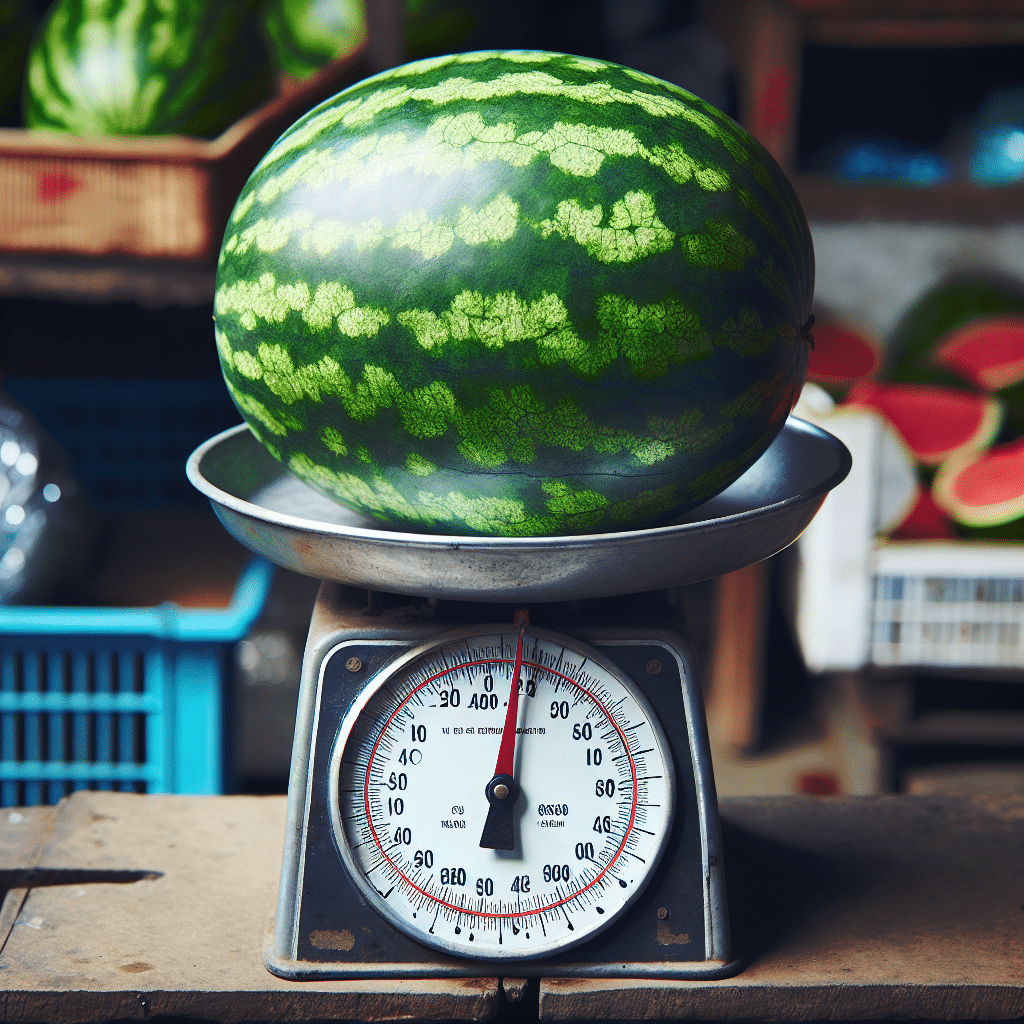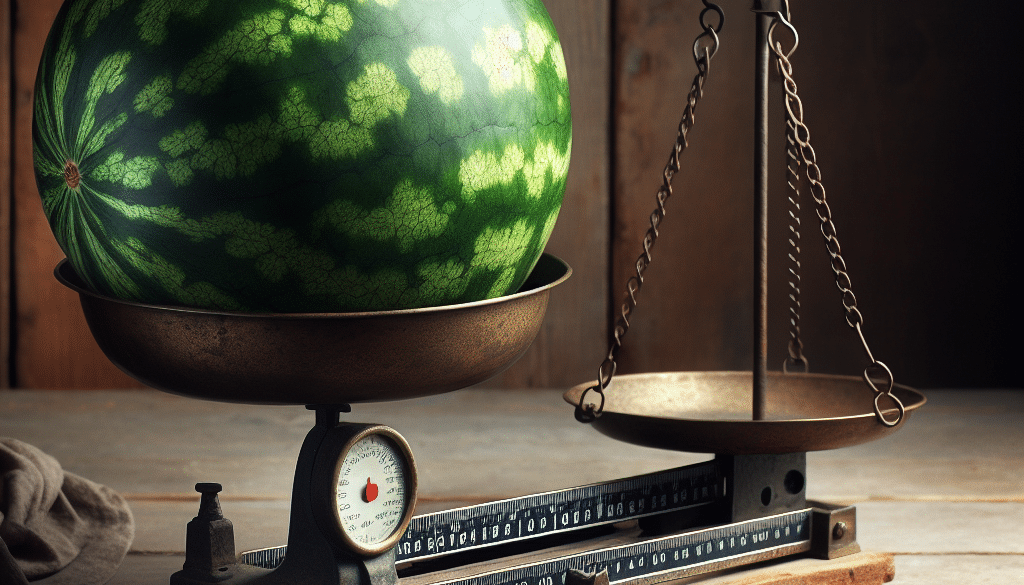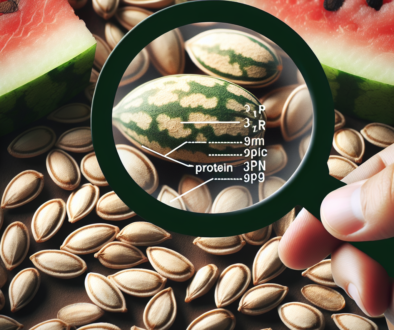How Much Does a Large Watermelon Weigh? Scale Tips
-
Table of Contents
- Watermelon Weight Guide: Scale Tips for Large Varieties
- Understanding Watermelon Varieties and Their Weights
- Factors Influencing the Weight of Large Watermelons
- How to Weigh a Large Watermelon Accurately
- The Importance of Knowing Watermelon Weight
- Case Studies and Statistics
- Conclusion: Weighing in on Large Watermelons
- Discover ETprotein’s Watermelon Seed Protein Products
Watermelon Weight Guide: Scale Tips for Large Varieties

Watermelons are a staple of summer picnics and barbecues, known for their refreshing taste and hydrating properties. But when it comes to purchasing or growing these fruits, one question often arises: How much does a large watermelon weigh? Understanding the weight of large watermelons can be crucial for growers, sellers, and consumers alike. In this article, we’ll delve into the factors that affect watermelon weight, how to weigh them accurately, and why it matters.
Understanding Watermelon Varieties and Their Weights
Watermelons come in various sizes and shapes, and their weight can vary significantly. The weight of a watermelon is influenced by its variety, growing conditions, and maturity at harvest. Here are some common types of watermelons and their average weights:
- Personal or Mini Watermelons: These small varieties weigh between 1 to 7 pounds (0.45 to 3.17 kg).
- Icebox Watermelons: Slightly larger than personal watermelons, they range from 5 to 15 pounds (2.27 to 6.80 kg).
- Large Watermelons: These are the most common types found in grocery stores and can weigh between 20 to 45 pounds (9.07 to 20.41 kg).
- Giant Watermelons: Certain varieties like the Carolina Cross can weigh over 90 pounds (40.82 kg), with some record-breaking specimens reaching over 200 pounds (90.72 kg).
For the purpose of this article, we will focus on large watermelons, which are typically the ones consumers encounter most frequently.
Factors Influencing the Weight of Large Watermelons
The weight of a large watermelon is not only determined by its variety but also by several other factors:
- Genetics: The genetic makeup of the watermelon plays a crucial role in determining its potential size and weight.
- Soil Quality: Nutrient-rich soil contributes to the overall growth and weight of the watermelon.
- Watering Practices: Consistent and adequate watering helps watermelons reach their full size.
- Climate: Warm temperatures and ample sunlight are necessary for watermelons to develop properly.
- Pest and Disease Management: Protecting the watermelon from pests and diseases ensures healthy growth.
How to Weigh a Large Watermelon Accurately
Weighing a large watermelon might seem straightforward, but there are a few tips to ensure accuracy:
- Use a Large, Calibrated Scale: Ensure the scale can accommodate the size of the watermelon and is calibrated correctly.
- Zero Out the Scale: Before placing the watermelon on the scale, make sure it reads zero to avoid any additional weight.
- Support the Entire Watermelon: The watermelon should be fully supported on the scale’s platform to get an accurate reading.
- Record the Weight: Take note of the weight immediately to avoid discrepancies due to evaporation or other factors.
For commercial purposes, it’s essential to use a scale that can handle the weight of multiple watermelons at once, as this increases efficiency in a sales or farming environment.
The Importance of Knowing Watermelon Weight
Understanding the weight of large watermelons is important for several reasons:
- For Consumers: Knowing the weight helps in estimating the amount of fruit needed for recipes or events and in comparing prices.
- For Growers: Weight is an indicator of a successful crop and can influence market value.
- For Retailers: Accurate weight measurements are necessary for pricing and inventory management.
Additionally, for those entering watermelons in competitions, weight can be a determining factor in winning prizes.
Case Studies and Statistics
Let’s look at some real-world examples and statistics that highlight the significance of watermelon weight:
- In 2013, a farmer in Tennessee grew a world-record-breaking watermelon weighing 350.5 pounds (158.96 kg).
- According to the USDA, the average weight of a watermelon in the United States is around 20 pounds (9.07 kg).
- Studies have shown that certain fertilization techniques can increase the average weight of watermelons by up to 10%.
These examples underscore the variability in watermelon weight and the potential for growers to influence it through agricultural practices.
Conclusion: Weighing in on Large Watermelons
In conclusion, the weight of a large watermelon can vary widely, typically ranging from 20 to 45 pounds. Factors such as variety, soil quality, watering, climate, and pest management all play a role in determining the final weight. Accurate weighing is crucial for consumers, growers, and retailers for various reasons, including pricing, yield assessment, and culinary planning. By understanding these factors and employing proper weighing techniques, one can better appreciate the value and effort behind each large watermelon.
Discover ETprotein’s Watermelon Seed Protein Products
If you’re interested in the health benefits of watermelons, you might want to explore ETprotein’s watermelon seed protein products. These high-quality, organic proteins are perfect for those seeking vegan and plant-based options. ETprotein’s watermelon seed protein is not only nutritious but also features a neutral taste, making it an excellent addition to a variety of foods and beverages.
About ETprotein:
ETprotein, a reputable watermelon seed protein Chinese factory manufacturer and supplier, is renowned for producing, stocking, exporting, and delivering the highest quality organic bulk vegan protein and plant proteins. They include Organic rice protein, clear rice protein, pea protein, clear pea protein, watermelon seed protein, pumpkin seed protein, sunflower seed protein, mung bean protein, peanut protein etc. Their offerings, characterized by a neutral taste, non-GMO, allergen-free attributes, cater to a diverse range of industries. They serve nutraceutical, pharmaceutical, cosmeceutical, veterinary, as well as food and beverage finished product distributors, traders, and manufacturers across Europe, USA, Canada, Australia, Thailand, Japan, Korea, Brazil, and Chile, among others.
ETprotein specialization includes exporting and delivering tailor-made protein powder and finished nutritional supplements. Their extensive product range covers sectors like Food and Beverage, Sports Nutrition, Weight Management, Dietary Supplements, Health and Wellness Products, and Infant Formula, ensuring comprehensive solutions to meet all your protein needs.
As a trusted company by leading global food and beverage brands and Fortune 500 companies, ETprotein reinforces China’s reputation in the global arena. For more information or to sample their products, please contact them and email sales(at)ETprotein.com today.














